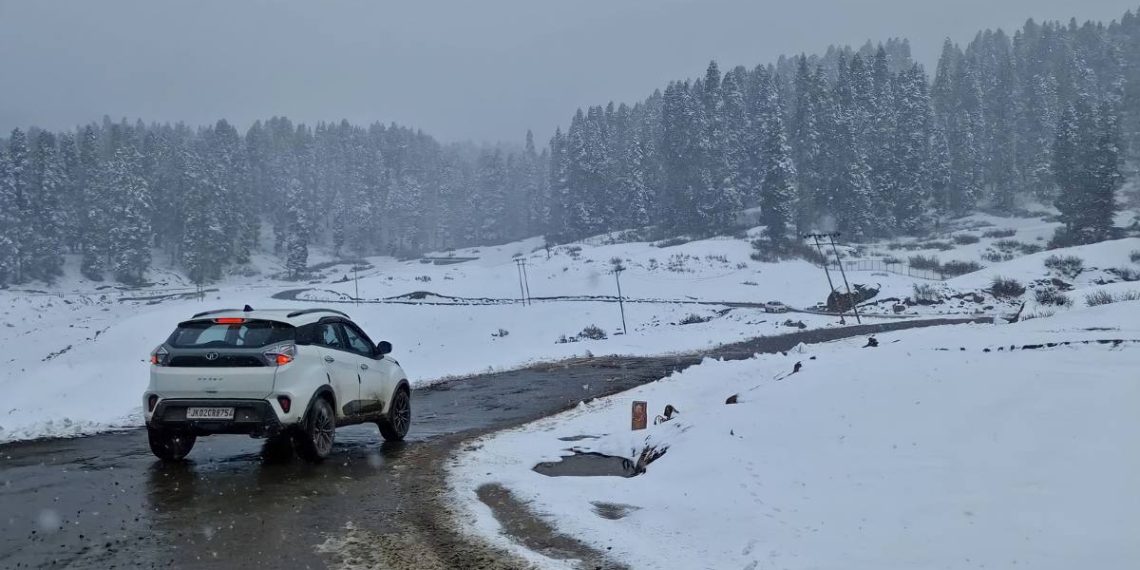Srinagar, Nov 30: Kashmir has started showing signs of winter arrival with noticeable shifts in the weather pattern. The region is bracing for harsh weather conditions this winter with heavy precipitation and prolonged cold spells, according to the India Meteorological Department (IMD) which has forecasted a La Niña event.
According to the IMD, Jammu and Kashmir is experiencing foggy mornings and there has been a gradual decline in both maximum and minimum temperatures.
Dr Mukhtar, a senior scientist at IMD, stationed at Srinagar weather station confirmed the onset of the La Niña weather effect, predicting a colder and beyond normal precipitation for the Kashmir region this year.
He said the impact of La Niña was likely to be evident starting mid-December this year with an expectation of heavy precipitation and intensified cold spells.
La Niña is a natural climate phenomenon occurring in the Pacific Ocean. It is characterised by cooler-than-average sea surface temperatures in the central and eastern equatorial Pacific. This cooling disrupts the atmospheric circulation patterns, significantly influencing weather systems worldwide.

Typically, La Niña leads to wetter-than-usual conditions in Southeast Asia and parts of Australia, while causing colder winters and increased precipitation in regions such as South Asia, including Kashmir.
The IMD said that this year, La Niña is forming over the Pacific Ocean, with its effects being felt across the globe. “While the current conditions are neutral to weak La Niña, the phenomenon is expected to strengthen as the winter progresses. This intensification will likely amplify the impact of cold and precipitation across the Kashmir region and parts of northern India,” it said.
Speaking on the changing weather pattern, Dr Mukhtar said, “The La Niña effect shifts atmospheric dynamics in ways that bring abnormal precipitation and colder temperatures. This can translate to a harsher winter for Kashmir, with more frequent snowfalls and prolonged cold spells.”
He said that past instances of La Niña, particularly in 2018-19 and 2021-22, brought significant snowfall to the region. “The likelihood of heavy snow spells and rainfall is high this season, and this could result in a much colder winter compared to the last few years,” he added.
The Kashmir Valley, already accustomed to freezing winters, remains highly vulnerable to the effects of La Niña.
Dr Mukhtar said it is important to learn from previous winters, citing the deficit precipitation observed during strong El Niño years and the subsequent changes in weather patterns. “Unlike last year, which was dominated by El Niño, this year’s La Niña effect will likely bring a more traditional and harsh Kashmiri winter,” he said.








